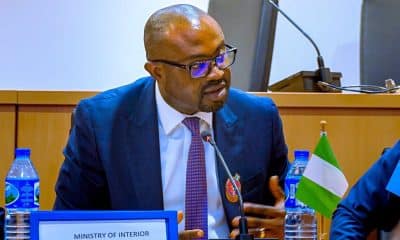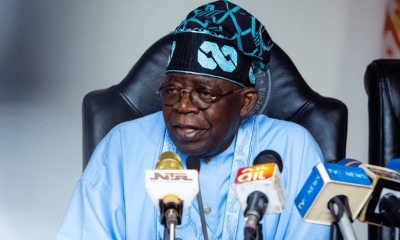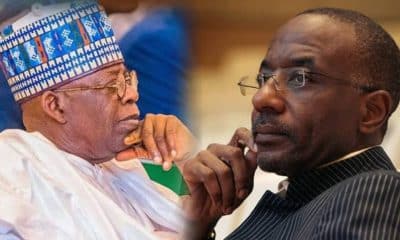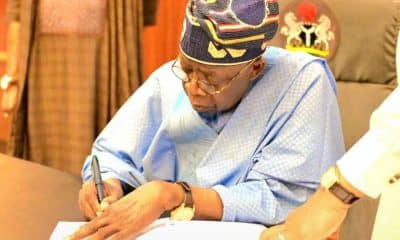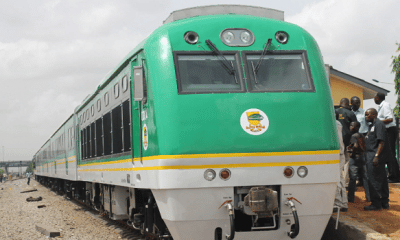Business
Panic As Buhari Govt Raises Expenditure By 183% In Seven Years
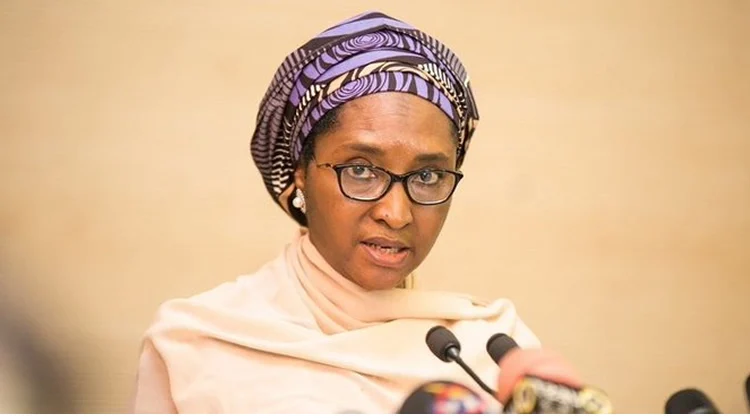
The expenditure of the Federal Government has been raised by 183 percent in seven years, Naija News has learned.
It was gathered that the Muhammadu Buhari government increased projected expenditure in its annual budget by about 185 per cent between 2016 and 2022.
A report on The PUNCH on Sunday disclosed some of the factors responsible for the rise in government spending as rising governance costs, economic recessions, COVID-19 outbreak, insecurity and other factors.
The newspaper reports according to data from the Budget Office, that the Federal Government budgeted to spend N6.06tn for the 2016 fiscal year.
However, in the recently passed 2022 budget, the projected aggregate expenditure was pegged at N17.12tn, almost thrice the amount budgeted in 2016.
This showed that government expenditure recorded significant increases almost every year during the period under the review. It was also observed that recurrent expenditure got the largest budget allocations during the period.
This indicates that government spending rose by N11.1tn or 183 per cent during the period under review.
In 2016, the Federal Government passed a budget of N6.06tn consisting of recurrent expenditure of N2.65tn, capital expenditure of N1.59tn, and debt servicing of N1.48tn.
Projected revenue for the 2016 fiscal year stood at N5.72tn, creating a fiscal deficit of N340bn.
In 2017, total expenditure rose to N7.44tn as against a revenue projection of N5.08tn resulting in a deficit of N2.36tn.
Recurrent expenditure in the 2017 budget was N2.99tn; capital expenditure was N2.18tn while money budgeted for debt servicing was N1.66tn.
Total expenditure ballooned to N9.12tn in the 2018 budget, comprising recurrent expenditure of N3.51tn, capital expenditure of N2.87tn, and debt servicing of N2.01tn.
With a revenue projection of N7.16tn, fiscal deficit in 2018 stood at N1.96tn.
The following year, the government departed from the trend by reducing total expenditure to N8.91tn. This sum was an aggregate of recurrent expenditure of N4.05tn, capital expenditure of N2.09tn and N2.25tn for debt servicing.
With a revenue projection of N6.99tn, there was a fiscal deficit of N1.92tn.
However, in 2020, the government reverted to reviewing its expenditure upward. With recurrent expenditure of N4.84tn, capital expenditure of N2.47tn, and N2.7tn budgeted for debt servicing, total expenditure rose to N10.59tn in 2020.
In 2021, government spending continued to soar as N13.59tn was budgeted as total expenditure. Out of this sum, N5.64tn was set aside for recurrent expenditure, capital expenditure stood at N4.13tn; while money budgeted for debt servicing was N3.32tn.
With revenue projection of N7.91tn, there was a fiscal deficit of N5.68tn.
In the 2022 budget, the government’s N17.12tn projected expenditure consists of N6.9tn recurrent expenditure, N5.9tn capital expenditure and N3.9tn earmarked for debt servicing.
With a revenue target of N10.13tn, the government projects a budget deficit of N6.99tn in 2022, which it said would be financed by new foreign loans.
The government has on several occasions justified its increasing expenditure by stating that the country isn’t spending as much as other African countries.

